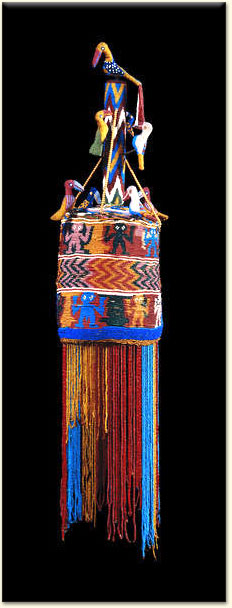Lord Dooku
also known as Darth Tyrranus
(the nickname provided if you are slow
in distinguishing good from evil)
The BBC is covering the fracas between George Lucas and the fans of his Star Wars. I think this means the orginal 3 films; no one considered compos mentis could be a fan of Lord Dooku and all the vacuity of the later prequels. I mean, I think the Family Guy take-offs on Star Wars are superior to those later films. (Blast! Now I have the Muzak version of Darth Vader's Theme from the Family Guy Death Star elevator playing in my head!)
It comes down to this, Lucas has been fiddling with the versions and denying access to the original versions of the films about which the fans assert
In our youth, our hearts were touched with fire...and so on.
There is an excellent quote by Marcel DuChamp:
http://www.bbc.co.uk/news/entertainment-arts-14944240
In 1957 Marcel Duchamp, the philosophical French artist... gave a lecture on this subject called The Creative Act. He starts it with this thought:
"Let us consider two important factors, the two poles of the creation of art: the artist on the one hand, and on the other the spectator who later becomes the posterity."
He then goes on to argue that the artist is merely the medium for his or her work; that he or she is not fully conscious of what is being produced, much of which derives from intuition.
This is a concept that I've heard many times from authors to artists, where they tell me that their words or thoughts come to them unconsciously or from an unknown source.
Building on this idea of artist-as-medium, Duchamp then introduces the idea that the audience has a vital role in validating something as an artwork:
"'The artist may shout from all the rooftops that he is a genius: he will have to wait for the verdict of the spectator in order that his declarations take a social value and that, finally, posterity includes him in the primers of Artist History."
In other words it's not for the artist to decide whether his or her work is any good, it is the job of the spectator, which in turn makes them part of the creative act.
Please note that there are elements here which closely resemble events in the history of religion as well as the history of art. So much comes from Intuition...
And it is hard to assert that Intuition is what we call an "Idea" since it is not fully conscious, if at all.
In fact, the very stuff of creation is within us and we struggle to find a proper "code" or "algorithm" that will render it fully conscious to ourselves and to others. Some of the primary codes lead us to expression in language, some to expression in sculpture, some to music, some to religion, some to physical activity such as Dance and Sports...
Again please note the importance of the Group or Community receiving the communication of the art: the audience. There may indeed be private languages, but there is no private immortality.
--


















No comments:
Post a Comment